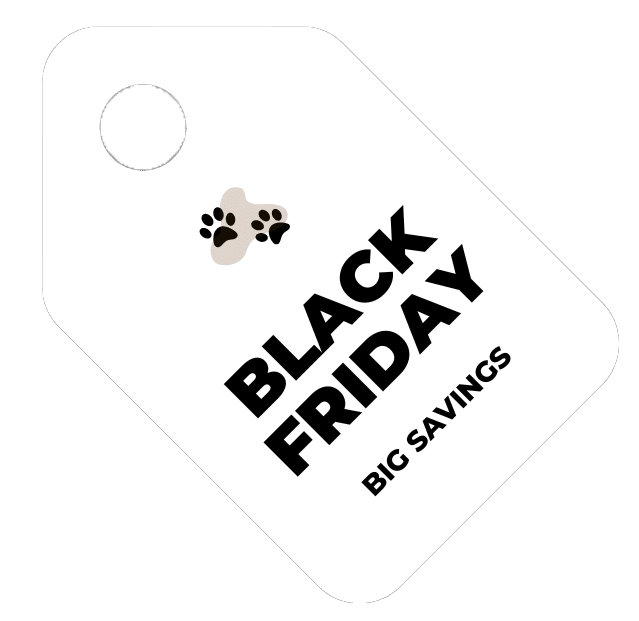Every cat owner knows that there’s nothing better than a kitty curled up and purring on your lap. Sometimes all our extra love causes extra weight if we show our affection with treats. You might be wondering: what is overweight for a cat? A cat is overweight at 10% above its ideal weight and obese if 20% or more over its ideal weight. Excess weight isn’t healthy for your cat and can contribute to a whole host of feline health conditions. Keep reading to find out more.
What Is Fat for a Cat?
If possible, your cat should be close to the ideal weight for his or her size and breed. It varies from individual cat to individual. But, generally, adult cats should weigh about 8 – 15 pounds, depending on size. Your cat should be able to jump, pounce, and get around with ease at a healthy weight.
Media and entertainment often portray cats who are slightly overweight because they look cute and fluffy, so it can be tough to get an accurate picture of how a healthy cat looks. Take a look at your cat from above: there should be a visible waist between the ribs and tail. Look at your cat from the front when the cat is sitting to check for a slight indentation below the ribs. Also, when your cat is standing, you should be able to feel its ribs when petting with only gentle pressure.
Pouches Aren’t Always a Bad Thing!
Cats often have a “pouch” hanging below their bellies when they’re standing as well, but this isn’t necessarily cause for alarm. The belly pouch should be composed primarily of skin. If the pouch is more of a pooch and filled with fat, that is a sign of excess weight.
How Did My Cat Get Overweight?
There are a lot of reasons why a beloved pet might end up over its ideal weight. You could be overfeeding either because your cat begs and you succumb or because you haven’t adjusted its diet as the pet has aged. Your cat’s treats may be too indulgent for regular consumption.
Indoor cats especially might not get enough exercise during the day. A cat could be avoiding playing or hiding if there is a new pet in the house or rambunctious kids. An indoor cat might have become bored.
What Happens if My Cat Is Overweight?
It might seem like no harm can come from indulging your cat with treats and extra food. It might also seem like your cat likes to sleep all day and then cuddle all night. There are, however, real health ramifications to allowing your cat to carry extra body weight.
Obese cats are at risk of a shortened life overall and at risk of having a variety of health problems along the way. Fat contributes to inflammation throughout the body. Overall, an overweight cat may be less able to fight infection and recover quickly from illness.
An overweight cat is at increased risk of heart disease and hypertension as well, and carrying extra weight may contribute to arthritis and joint problems, so your cat is less able to pounce and jump up and find the most comical and crazy places to sleep.
How Can I Help My Cat Lose Weight?
It’s important to talk to your veterinarian if you’re thinking about starting on a weight loss plan or diet change for your cat. First of all, your vet will want to do an exam and make sure the weight gain results from environmental factors like lack of exercise or overfeeding and not a health condition.
Your vet should be able to direct you to some weight-loss food and help you decide the right and healthy amount of food and pet supplements your cat needs every day. Introduce changes to your cat’s diet gradually to avoid stomach upset or rejection.
Overall, just like you’d expect, a change to a healthier diet and an increase in activity will help your cat lose excess weight.
Adjust Your Cat’s Diet
Remember, your cat is a carnivore. Some less expensive cat food contains much more grain product than is healthy for a cat. A switch to a quality wet food might be helpful and cause your cat to feel more satisfied at mealtime.
Cats are also hunters—you’ve seen yours with the laser pointer—so introduce a puzzle feeder for long days alone. Making the cat figure something out for a treat will help cut down on treat count and may help keep your pet thinking, engaged, and busy.
Increase Activity
You are correct if you think cats like to sleep a lot. They are more than happy to take many naps in the sun, but they do need to be physically active and play for at least thirty minutes a day. Introduce some new toys for the two of you to play with together and then sit down and spend some time playing every day.
Elk Antler Supplements from Wapiti Labs
At Wapiti Labs, we provide elk velvet antler supplements for pet owners looking to improve their pets overall health. The right diet and supplements may help your cat with more than just their weight; they support the liver, kidneys, immune system, joints, mobility and much more.
weight; they support the liver, kidneys, immune system, joints, mobility and much more.
Our daily supplements for Cats: Vital and ReVitalize are made with Elk Velvet Antler from our herd of 200 elk roaming in a pollution-free, Minnesota ranch. Connect with us or have a look at our offerings to learn more about how our supplements may benefit your cat.


